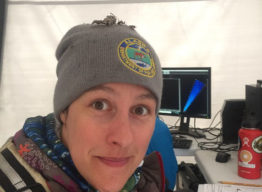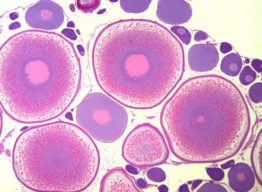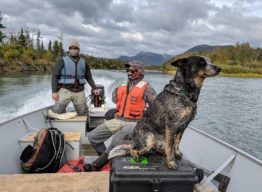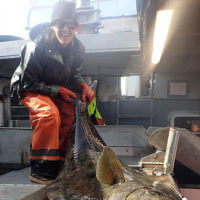


B.Sc. Biology – Western Washington University
As a premier fisheries, riparian ecology, and winter wilderness technician from Washington State, I placed three consecutive years in the Methow Valley’s Technician Olympics, before taking on the challenge of directing the event myself. I come to Alaska with nearly a decade working in the field of fisheries, habitat, and wildlife, focusing on trophic level ecology; river morphology; and juvenile and adult salmonid population estimates. Other positions as acclimation facility co-manager, riparian cartographer and environmental educator each bring a unique perspective to my capricious career path. Additional employment endeavors include in-stream hazard assessments, beaver relocating, and winter carnivore and rattlesnake trapping and tracking.
Pursuit of a higher education in the field of fisheries and fisheries management brings me to Alaska. Since my spring 2018 arrival, summer work for the Department of Fish and Game, Homer, keeps me very busy on projects to: monitor Chinook escapement for the Kenai Peninsula, collect and sample brood stock from the Ninilchik river, and examine of regional hatchery stray rates using otoliths. As a lifelong learner, I jumped at the opportunity to be a part of University of Washington’s Alaska Salmon Program, located near Iliamna this last summer. Here, I collected data contributing to the long-term monitoring of the Bristol Bay ecosystem. This ecosystem is to date essentially unaltered by human impacts and supports the world’s largest salmon fishery.
Fall 2018 marked the beginning of my study with APU and International Pacific Halibut Commission (IPHC, Seattle, WA). In coordination with the IPHC’s Reproductive Assessment Project I will be defining the histology stages of Pacific halibut oogenesis, as well as examining the driving factors of female reproductive maturation. The study is hugely important for fisheries management in the face of changing environmental, ocean, and fish population dynamics. I am loving the intricacies and challenges of work in the marine environment and truly grateful to be working with the fine people at APU and IPHC.
Funding for this work is provided by the International Pacific Halibut Commission, the Groundfish Forum via Alaska Education Tax Credit Program, and the merit scholarship from At-Sea Processor’s Association.

